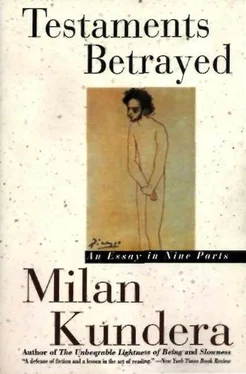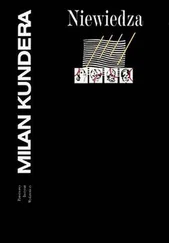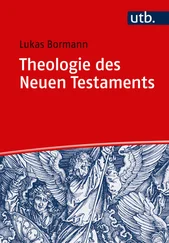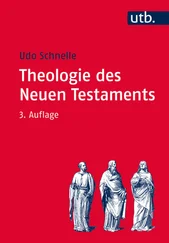Let's look at this proposal: what is actually the difference between the Broch-Svevo-Hofmannsthal context and the Broch-Joyce-Gide context? The first con-
text is literary in the broad, diffuse sense of the word; the second is specifically novelistic (the Gide of The Counterfeiters is the one Broch is claiming connection to). The first context is a small context -that is, local, Central European. The second is a large context -that is, international, global. By setting himself alongside Joyce and Gide, Broch is demanding that his novel be seen in the context of the European novel; he is aware that The Sleepwalkers, like Ulysses or The Counterfeiters., is a work that revolutionizes the novel form, that creates a new aesthetic of the novel, and that can be understood only against the backdrop of the history of the novel as such.
This demand of Broch's is valid for every important work. I can't repeat it too often: the value and the meaning of a work can be appreciated only in the greater international context. That truth becomes particularly pressing for any artist who is relatively isolated. A French surrealist, a " nouveau roman" author, a naturalistic nineteenth-century writer-all were borne along by a generation, by a movement, known throughout the world; their aesthetic program preceded their work, so to speak. But what about Gombrowicz-where does he fit in? How are people to understand his aesthetic?
He left his country in 1939, at the age of thirty-five. For his credential as an artist, he brought with him only one book, his novel Ferdydurke, an ingenious work barely known in Poland, totally unknown elsewhere. He landed far from Europe, in Argentina. He was unimaginably alone. The great Argentine writers never came near him. Later, the Polish anti-Communist emigres had little curiosity about his art. For fourteen
years, nothing happened to him, and then in 1953 he began to write and publish his Diary. It doesn't tell us much about his life, it is primarily a statement of his position, a continuing aesthetic and philosophic self-interpretation, a handbook on his "strategy"-or better yet, it is his testament; not that he was thinking, at the time, of his death: but as a last, definitive wish he wanted to establish his own understanding of himself and his work.
He demarcated his position by three key refusals: a refusal to submit to engagement in Polish emigre politics (not that he had pro-Communist sympathies but because the principle of politically engaged art was repugnant to him); a refusal of Polish tradition (one can make something worthwhile for Poland, he said, only by opposing "Polishness," by shaking off its heavy Romantic legacy); lastly, a refusal of the Western modernism of the 1950s and '60s-a modernism he saw as sterile, "unfaithful to reality," ineffectual in the art of the novel, academic, snobbish, absorbed in its self-theorizing (not that Gombrowicz was less modern, but his modernism was different in nature). That third "clause of the testament" is most important and decisive-and is also doggedly misunderstood.
Ferdydurke was published in 1937, a year before Nausea., but as Gombrowicz was unknown and Sartre famous, Nausea, so to speak, usurped Gombrowicz's rightful place in the history of the novel. Whereas Nausea is existential philosophy in a novels clothing (as if a professor had decided to entertain his drowsy students by teaching the lesson in the form of a novel), Gombrowicz wrote a real novel that ties into the old
comic-novel tradition (as in Rabelais, Cervantes, Fielding), and so existential issues, about which he was no less passionate than Sartre, come across in his book as unserious and funny.
Ferdydurke is one of those major works (along with The Sleepwalkers and The Man Without Qualities) that I see as inaugurating the "third (or overtime) period" of the novel's history, by reviving the forgotten experience of the pre-Balzac novel and by taking over domains previously reserved for philosophy. That Nausea, not Ferdydurke, became the exemplar of that new orientation has had unfortunate consequences: the wedding night of philosophy and the novel was spent in mutual boredom. Discovered some twenty or thirty years after their creation, Gombrowicz's works, and Broch's and Musil's (and certainly Kafka's), no longer had the potency required to seduce a generation and create a movement; interpreted by a different aesthetic school, which in many regards stood opposed to them, they were respected-even admired-but ill understood, such that the greatest shift in the history of the twentieth-century novel went unnoticed.
As I've said before, this was also the case with Janacek. Max Brod put himself at Janacek's service as he had at Kafka's: with selfless ardor. He deserves praise: he gave himself over to the two greatest artists ever to live in my native land. Kafka and Janacek: both underrated; both with an aesthetic difficult to apprehend; both victims of the pettiness of their milieu. Prague
represented an enormous handicap for Kafka. He was isolated there from the German literary and publishing world, and that was fatal for him. His publishers concerned themselves very little with this author whom they barely knew personally. In a book on this problem, Joachim Unseld, the son of a leading German publisher, shows that the most likely reason (I consider the idea very realistic) why Kafka left his novels unfinished is that no one was asking him for them. Because if an author has no definite prospect of publishing his manuscript, nothing forces him to put the finishing touches on it, nothing keeps him from moving it off his desk for the time being and going on to something else.
To the Germans, Prague was just a provincial town, like Brno to the Czechs. Both Kafka and Janacek were therefore provincials. Kafka was nearly unknown in this country whose population was alien to him, while Janacek, in the same country, was trivialized by his own people.
Anyone who wants to understand the aesthetic incompetence of the founder of Kafkology should read Brod's monograph on Janacek. An enthusiastic work, it was certainly a great help to the underrated master. But how weak it is, how naive! with its lofty words-"cosmos," "love," "compassion," "humiliated and insulted," "divine music," "hypersensitive soul," "tender soul," "soul of a dreamer"-and without the slightest structural analysis, the slightest attempt to get at the particular aesthetic of Janacek's music. Knowing musical Prague's hatred for the composer from the provinces, Brod wanted to prove that Janacek belonged to the national tradition and that he was every bit as good as the great Smetana, idol of the Czech national ideology.
He became so obsessed by this provincial, narrow-minded, Czech-focused polemic that the rest of world music slipped out of his book, and of all composers of all periods, the only one mentioned is Smetana.
Ah, Max, Max! It's no good rushing into the other team's territory! All you'll find there are a hostile mob and bribed referees! Brod failed to utilize his position as a non-Czech to place Janacek in the large context, the cosmopolitan context of European music, the only one where he could be defended and understood; he locked him back within his national horizon, cut him off from modern music, and sealed his isolation. Such first interpretations stick to a work, it never shakes them off. Just as Brod's ideas would forever color all the literature on Kafka, so Janacek would forever suffer from the provincialization inflicted on him by his compatriots and confirmed by Brod.
Brod the enigma. He loved Janacek; he was guided by no ulterior motive, only by the spirit of justice; he loved him for the essential, for his art. But he did not understand that art.
Читать дальше












